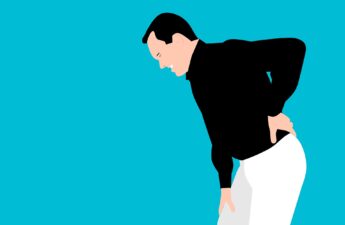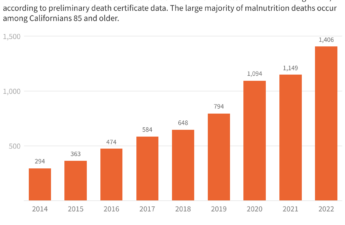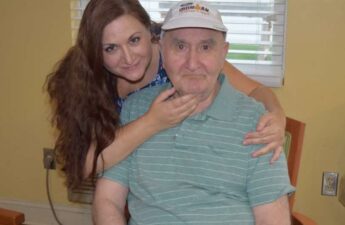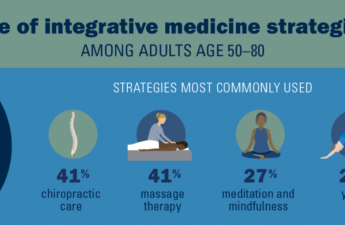Category: Aging
Balance declines with age, but exercise can help stave off some of the risk of falling
A number of physical changes with aging often go unseen preceding falls, including muscle weakness, decreased balance and changes in vision.
Am I too old to build muscle?
What science says about sarcopenia and building strength later in life
One in five US adults report persistent, chronic pain, study finds
Overall, the study found that the rate of chronic pain and high-impact chronic pain among adults is approximately 21% and 8%, respectively. Chronic pain is pain that is experienced on most days or every day in the past three months; and high-impact chronic pain s pain that limits life or work activities on most days or every day during the past three months.
The number of elderly dying of malnutrition in the US has more than doubled since 2018
In California the rate of elderly dying of malnutrition has accelerated, Phillip Reese reports.
Being ‘Socially Frail’ Comes With Health Risks for Older Adults
Social frailty is a corollary to physical frailty, a set of vulnerabilities (including weakness, exhaustion, unintentional weight loss, slowness, and low physical activity) shown to increase the risk of falls, disability, hospitalization, poor surgical outcomes, admission to a nursing home, and earlier death in older adults.Essentially, people who are physically frail have less physiological strength and a reduced biological ability to bounce back from illness or injury.
What is delirium?
Up to one-third of older people admitted to hospital are diagnosed with delirium. This increases the risk of unnecessary functional decline, a longer hospital stay, falls, needing to be admitted to a residential aged care facility, and death. However, identifying the condition early reduces these risks. Delirium can also be prevented by identifying who is vulnerable to the condition and finding ways of reducing the person’s risk.
Epigenetic and social factors both predict aging and health – but new research suggests one might be stronger
For years, researchers have been using clinical factors normally collected at physicals, like hypertension, cholesterol and weight, as indicators to predict aging. The idea was that these measures could determine whether someone is a fast or slow ager at any point in their life cycle. But more recently, researchers have theorized that there are other biological markers that reflect aging at the molecular and cellular level. This includes modifications to a person’s genetic material itself, or epigenetics.
Turning 50? Here are 4 things you can do to improve your health and well-being
There are four things in particular that take on greater importance when you turn 50 – that go beyond general health advice that’s beneficial at any age, like staying active, eating well and getting enough sleep.
Supreme Court Case Could Curtail Rights of Medicaid Patients
Twenty-two Republican-leaning states have urged the Supreme Court to block beneficiaries of federal safety net programs from suing. If the court agrees participants in many federal entitlement programs could lose the right to go to court when they believe a state, city or county has violated their rights in the administration of those programs.
Endgame: How the Visionary Hospice Movement Became a For-Profit Hustle
It might be counterintuitive to run an enterprise that is wholly dependent on clients who aren’t long for this world, but companies in the hospice business can expect some of the biggest returns for the least amount of effort of any sector in American health care. Medicare pays providers a set rate per patient per day, regardless of how much help they deliver. Since most hospice care takes place at home and nurses aren’t required to visit more than twice a month, it’s not difficult to keep overhead low and to outsource the bulk of the labor to unpaid family members — assuming that willing family members are at hand.
What’s this ‘longevity’ diet, and will it really make you live longer?
Foods in this diet are vegetables, including leafy greens, fruit, nuts, beans, olive oil, and seafood that’s low in mercury.
Many types of leisure time activity may lower risk of death for older adults, NIH study finds
Older adults who participate weekly in many different types of leisure time activity, such as walking for exercise, jogging, swimming laps, or playing tennis, may have a lower risk of death from any cause.
Poll: Many older adults look beyond conventional medicine for help, but few talk to their doctors about it
Nearly 40% of older adults currently use at least one integrative medicine strategy to try to ease symptoms of a physical or mental health issue, or to help them relax, a new poll finds. But only 18% of older adults who currently use, formerly used or are interested in using integrative health strategies have actually talked about it with a health care provider.
Sunscreen: here’s why it’s an anti-ageing skincare essential
Photoageing is a cumulative process that occurs over time. Doing anything you can to limit exposure will slow this process – But choosing the right kind of sunscreen may also help somewhat.













